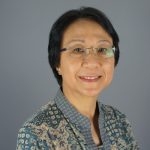The welfare of Muslim women in Afghanistan has been our great concern in the aftermath of the return of the Taliban in the country. How can the global church understand what they face in the area of education, family, and public life, in order to help and pray for them? First, we need to know the many differences among Muslim women such as sectarian distinctions, varied religious experiences, and diverse ethnic origins. Moyra Dale, an ethnographer with a focus on Muslim women, highlights and explains some of these differences in ‘The Diversity of Muslim Women: Afghanistan and Beyond’. She concludes, ‘Muslim women today number almost a billion, 12 percent of the world’s population, spread across the globe. . . . Our role is not to make generalizations about those women we encounter and their backgrounds, history, or education, but rather to listen well and to ask questions about them or the communities from which they come . . . to understand their unique situation, and point them to the God who fully sees and loves them.’
But ‘how is it possible to share with people about a loving God when Christians are non-reconciling?’ Daniel Munayer questions in ‘Embracing Reconciliation: Six stages for building peace for Israel-Palestine and other troubled nations’, especially in his specific context where there are ‘many Christians failing to exhibit justice and compassion in the Israel-Palestine conflict.’ Daniel, a Palestinian Christian, believes that the gospel of reconciliation is damaged by Christians holding ‘Islamophobic and antisemitic views’ and by their ‘inaction’ in the midst of injustices, ‘especially if they have significant power and influence.’ One Christian initiative in Israel-Palestine that has understood the need for reconciliation is Musalaha (‘Reconciliation’ in Arabic), a faith-based organization specializing in conflict transformation and peacebuilding, of which Daniel is the Development Manager. He lays out the ‘unique 6-stage reconciliation theology and model’ developed by Musalaha, with practical steps that the global church could take in its engagement with conflicts and its ‘leading role in the mandate of reconciliation.’
Some may ask, ‘Is this role of engaging with conflicts and bringing reconciliation part of the Mission of God? Shouldn’t a missional church focus on preaching the gospel?’ Jim Memory, international leader of the European Christian Mission, and his team conducted research on behalf of the Lausanne Committee of Spain, to find out ‘whether the theological understanding and practice of “missionality” was advancing or receding within Spanish evangelical churches.’ The results and analysis of the research are summarized in ‘How Do We Measure Missional Understanding of Churches? Spain as a model for research’. Based on quantitative and qualitative results, the study shows ‘the Mission of God and the term ‘missional’ are widely understood and used but those who consider God’s Mission as a task that he has delegated to the church still predominate,’ particularly the task of proclaiming the gospel. However, there are those who understand ‘the Mission of God as collaborating with God in his Mission: living a missionary lifestyle, serving God, cooperating with him, being agents of change and transformation, being a presence and influence in in our context, being salt and light.’
Joel Edwards, a Jamaican immigrant who grew up in Britain, modelled this collaboration with God in his Mission during his lifetime. This is clearly demonstrated in ‘The Leadership Legacy of Joel Edwards: A short biography of a Jamaican icon’ by Las Newman, the Global Associate Director for Regions for the Lausanne Movement. In his various leadership roles in the UK and globally, Joel Edwards helped bridge relationships, engage the society in love and unity, and advocated for equality, human rights, and religious freedom. In his tribute to him, David Muir his long-time close friend and colleague summarizes that ‘at the centre of his ministry were three big ideas: making Christ credible in the public square, mediating the gospel as good news, and uniting evangelicals to transform society.’ Ultimately, the leadership legacy of Joel Edwards for the global church ‘illustrates the possibilities and value of immigrant churches in revitalizing Christianity in older Christian environments.’
May the articles in this issue draw us to participate in God’s Mission in his world today.
Lausanne Global Analysis is available in English Portuguese, Spanish, and French. For the first time, we have also translated two articles into Korean: ‘선교에 대한 교회의 이해 측정 방법‘ (‘How Do We Measure Missional Understanding of Churches?’) and ‘무슬림 여성의 다양성 이해‘ (‘The Diversity of Muslim Women’). Please send any questions and comments about this issue to analysis@lausanne.org. The next issue will be released in March 2022.

